How The Happiness Industry Has Hijacked Virtually Every Facet Of Contemporary Life
Metropolis Magazine
|May 2019
The Architecture of Happiness was a trite book published in the mid-2000s and mercifully forgotten. Our Happy Life: Architecture and Well-Being in the Age of Emotional Capitalism, a new exhibition at the Canadian Centre for Architecture (CCA) in Montreal, isn’t nearly as snappily titled, but as an enterprise, it is far more probing and curious. Curated by Francesco Garutti, the show explores how, after the 2008 financial crash, the “happiness industry”—comprising government initiatives, economic indices, and city rankings— hijacked virtually every facet of contemporary life.
Metropolis’s Samuel Medina spoke to Garutti about happiness as a social project, the “cold intimacy” of Instagram, and architecture’s new spaces of meaning.

SAMUEL MEDINA: A curator once told me that he had read every popular book about happiness there is. He said that it helps him do his job—communicating with the public—better. What sparked your interest in the subject?
FRANCESCO GARUTTI: You can go as far back as Greek philosophy [laughs]. I had a chat with the artist Simon Fujiwara— I was very intrigued by his The Happy Museum (2016) at the Berlin Biennale. The discussion was coming from his artistic practice; we were not talking about architecture at all. But afterward I was just bumping into this word—the idea—everywhere and in every context. I began finding “happiness” in literature and in journalism, for example, these city rankings and Gallup polls. What is happiness? It is a set of values. It is a political agenda. I thought to myself, “Let’s pose to architects some questions of happiness.”
SM: Happiness has become a metric—“a set of values,” as you say—with transnational currency. It now enjoys the imprimatur of political science and sociological research. When did that happen?
FG: The exhibition has a precise chronological moment— the ten years between 2008 and 2018. It is true that this weird entity of “happiness,” as we are defining it, was happening in the early ’90s. That is the moment it began to be marketed in a new way, as a set of positive emotions to be used as an asset. Will Davies’s book
Denne historien er fra May 2019-utgaven av Metropolis Magazine.
Abonner på Magzter GOLD for å få tilgang til tusenvis av kuraterte premiumhistorier og over 9000 magasiner og aviser.
Allerede abonnent? Logg på
FLERE HISTORIER FRA Metropolis Magazine
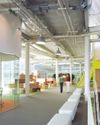
Metropolis Magazine
No New Buildings
The energy already embodied in the built environment is a precious unnatural resource. It’s time to start treating it like one.
7 mins
November/December 2019

Metropolis Magazine
The Circular Office
Major manufacturers are exploring every avenue to close the loop on workplace furniture.
1 mins
November/December 2019

Metropolis Magazine
Signs of Life
Designers, curators, and entrepreneurs are scrambling to make sense of motherhood in a culture that’s often hostile to it.
7 mins
November/December 2019
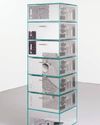
Metropolis Magazine
Interspecies Ethic
In probing the relationship between humans and nature, two major exhibitions question the very foundations of design practice.
6 mins
November/December 2019
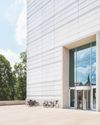
Metropolis Magazine
Building on Brand
The Bauhaus turned 100 this year, and a crop of museum buildings sprang up for the celebration.
8 mins
November/December 2019
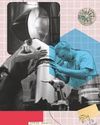
Metropolis Magazine
Building for Tomorrow, Today
Radical change in the building industry is desperately needed. And it cannot happen without the building trades.
6 mins
November/December 2019

Metropolis Magazine
Strength from Within
Maggie’s Centres, the service-focused cancer support network, eschews clinical design to arm patients in their fight for life.
5 mins
October 2019

Metropolis Magazine
Next-Level Living
The availability of attractive, hospitality-grade products on the market means everyday consumers can live the high life at home.
1 mins
October 2019
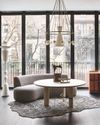
Metropolis Magazine
Mi Casa, Su Casa
Casa Perfect creates a memorable shopping experience in lavish private homes.
1 min
October 2019

Metropolis Magazine
Enter The Culinarium
AvroKO imagines the future of residential amenities—where convenience, comfort, and sustainability meet.
5 mins
October 2019
Translate
Change font size

